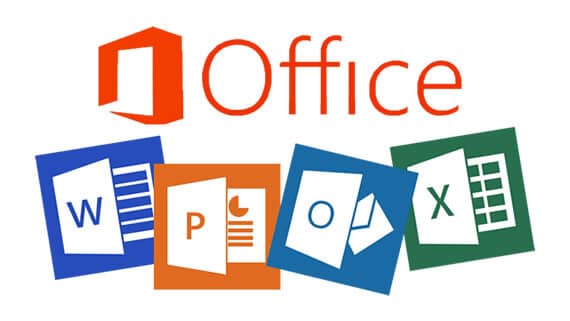 Microsoft Office, commonly referred to as MS Office, is a suite of productivity software widely used in both personal and professional settings. It includes applications like Microsoft Word (for document creation), Microsoft Excel (for data analysis and spreadsheets), Microsoft PowerPoint (for presentations), and Microsoft Outlook (for email management). Since its introduction, MS Office has become a cornerstone of modern-day computing, making it essential for anyone entering the workforce to be proficient in its use.
Microsoft Office, commonly referred to as MS Office, is a suite of productivity software widely used in both personal and professional settings. It includes applications like Microsoft Word (for document creation), Microsoft Excel (for data analysis and spreadsheets), Microsoft PowerPoint (for presentations), and Microsoft Outlook (for email management). Since its introduction, MS Office has become a cornerstone of modern-day computing, making it essential for anyone entering the workforce to be proficient in its use.
MS Office’s versatility extends beyond individual usage to large enterprises, educational institutions, and small businesses. It plays a critical role in managing data, creating documents, analyzing information, and facilitating communication.
The Need for MS Office Training
In today’s fast-paced digital world, MS Office skills have become essential for many job roles, especially those in administrative, managerial, and technical domains. Proficiency in MS Office applications enhances productivity and efficiency, whether it’s writing reports in Word, analyzing data in Excel, or creating presentations in PowerPoint.
MS Office training ensures that individuals can confidently handle various tasks, meet professional requirements, and maximize their effectiveness in their job roles. Many industries, including healthcare, education, finance, and IT, prioritize MS Office proficiency when hiring candidates.
Features of MS Office
The MS Office suite offers a comprehensive set of tools that cater to various business and personal productivity needs:
- Microsoft Word: Ideal for creating documents, reports, and professional papers. It includes formatting tools, collaboration features, and editing functions that make document creation easier.
- Microsoft Excel: Excel is a powerful tool for data analysis, spreadsheet management, financial calculations, and report generation. It includes features like formulas, pivot tables, charts, and conditional formatting to analyze data efficiently.
- Microsoft PowerPoint: A tool for creating visually compelling presentations that are used in meetings, conferences, and educational settings. PowerPoint allows users to incorporate text, images, animations, and videos into their slides.
- Microsoft Outlook: Used primarily for email management, it also integrates calendars, task management, and contact organization. It is widely used in business settings to facilitate communication and scheduling.
Each of these applications plays a significant role in the day-to-day operations of businesses, making MS Office training essential for individuals aiming to work in modern office environments.
MS Office Training Institute Overview
A professional MS Office training institute offers structured courses designed to help individuals master the various applications within the MS Office suite. These institutes focus on both the theoretical and practical aspects of using MS Office, ensuring that students are prepared for real-world job tasks.
Joining an accredited training institute in Dilsukhnagar ensures access to certified trainers, comprehensive training material, and a hands-on learning environment that promotes practical experience.
MS Office Courses Offered in Dilsukhnagar
MS Office training institutes in Dilsukhnagar offer a wide range of courses, from beginner-level programs to advanced training for professionals:
- Basic MS Office Course: This course covers fundamental skills in Word, Excel, PowerPoint, and Outlook, focusing on document creation, data entry, and presentation skills.
- Advanced MS Office Skills: For professionals, this course dives into complex features like Excel macros, pivot tables, Power Query, and advanced PowerPoint functionalities.
- Microsoft Office Specialist (MOS) Certification: A certification program that validates an individual’s proficiency in using MS Office. This globally recognized certification enhances career prospects by verifying advanced skills in specific MS Office applications.
Benefits of Joining an MS Office Training Institute
Enrolling in an MS Office training institute offers several key benefits:
- Improved Productivity: Learning how to efficiently use MS Office tools leads to better time management and enhanced productivity in the workplace.
- Certification: Completing a course at a certified institute often leads to certification, which adds value to your resume and increases your employability.
- Practical Experience: Training institutes provide hands-on practice, which allows students to apply what they learn in real-world scenarios, making them job-ready.
- Career Advancement: MS Office skills are essential in administrative roles, data analysis, and project management, leading to promotions and career growth.
Key Features of the Best MS Office Training Institutes in Dilsukhnagar
When choosing an MS Office training institute in Dilsukhnagar, it’s important to look for the following features:
- Expert Faculty: Certified trainers with experience in teaching MS Office skills.
- Comprehensive Curriculum: Courses that cover both the basic and advanced aspects of MS Office, including practical applications in business settings.
- Modern Infrastructure: Well-equipped computer labs with the latest versions of MS Office, allowing for hands-on practice and real-time learning.
- Flexible Timings: Institutes that offer flexible batch timings to accommodate working professionals and students.
Popular MS Office Training Institute in Dilsukhnagar, Hyderabad
Coss Cloud Solutions in Dilsukhnagar are known for offering excellent MS Office training. These institutes are well-regarded for their quality of instruction, certification programs, and placement assistance:
Microsoft Office Specialist (MOS) Certification
The Microsoft Office Specialist (MOS) certification is a globally recognized credential that validates a person’s proficiency in Microsoft Office applications. It is designed for individuals seeking to demonstrate their skills and expertise in various Office applications, such as Word, Excel, PowerPoint, Outlook, and Access.
4o
